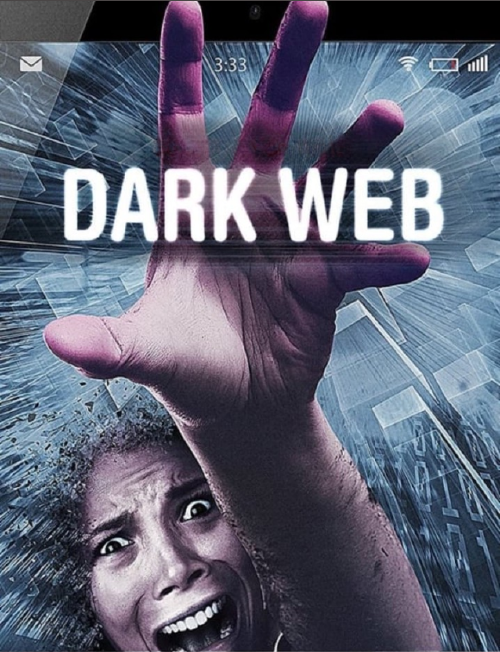This article is part of a series.
- The Cyber Crime Awareness Series – What You Don’t Know Can Hurt You
- Part 1: Cyber Crime is Booming in Australia
- Part 2: Don’t Click That Link!
- Part 3: Digital Arrests, Loan App Blackmail & High-Stakes Scams Targeting Australians
- Part 4: Your OTP Isn’t Safe
- Part 5: The Price of Free
- Part 6: Inside the Dark Web
- Part 7: Digital Detectives
- Part 8: Cyber Security Toolkit

🕳️ Inside the Dark Web – What Lies Beneath the Surface of the Internet
The Internet You Know Is Just the Beginning
Most Australians live their digital lives in the open — Google, YouTube, Facebook, WhatsApp. But there’s another layer most never touch. One that thrives in shadows.
It’s called the Dark Web, and while it sounds like something out of a movie, it’s very real — and increasingly relevant to your privacy, your identity, and your wallet.
🌐 Dark Web vs. Deep Web – Know the Difference
Let’s get this clear first:
- Surface Web – What Google can index. Public websites, news, blogs, YouTube.
- Deep Web – Legit private content: your email inbox, banking dashboard, medical records behind logins.
- Dark Web – A small part of the Deep Web that’s intentionally hidden and requires special tools (like Tor) to access.
The Dark Web isn’t illegal in itself — but much of the activity there is.
🕵️♂️ What Actually Happens on the Dark Web?
It’s a haven for:
- Stolen data sales (bank logins, Medicare numbers, passports)
- Drug and weapons trafficking
- Fake identity documents
- Hacker-for-hire services
- Child exploitation materials
- “Red Rooms” — disturbing live-streamed crimes (myth or not, they are often mentioned)
While it can host political activism and whistleblower platforms (like SecureDrop or Pirate Radio), criminal commerce dominates.
In one Aussie case, leaked Optus data appeared for sale on a dark web forum within days of the breach. It included names, addresses, and even driver’s licence numbers — all listed for crypto.
🧠 How Does It Stay Hidden?
It runs on:
- Tor (The Onion Router): A browser that routes traffic through encrypted relays to hide identity and location
- .onion domains: Only accessible via Tor
- Cryptocurrency: Bitcoin and privacy coins like Monero are the default currencies
This layered anonymity makes it incredibly hard to trace — even for law enforcement.
💰 Data is Currency Here
If you’ve been part of a breach (Optus, Medibank, Latitude…), your:
- Passport number
- Medicare ID
- Phone number
- Email and password combo
- Location history
…may already be bundled and traded like merchandise.
Even if you’ve never visited the Dark Web, you could be in it.
⚠️ Is It Legal to Visit the Dark Web?
In Australia: ✅ Accessing the Tor browser isn’t illegal. ❌ Accessing illegal content or services absolutely is.
It’s a legal grey area until you view, download, or transact in prohibited material. And make no mistake — law enforcement monitors Dark Web activity globally, including:
- Australian Federal Police (AFP)
- International partnerships (Europol, FBI, INTERPOL)
You could also expose your device to malware just by clicking the wrong link on a .onion site.
🇦🇺 How Australians Are Affected
- Optus and Medibank data were confirmed leaked and shared in dark forums
- Some Australians have been targeted in blackmail/extortion attempts using morphed images or stolen private photos
- Credit card dumps often include ANZ, NAB, and Commonwealth card BINs
- Fake passports and driver licences are available — including from Australia
One Australian victim reported receiving a deepfake video threatening to expose him unless Bitcoin was paid. The footage used photos from his public social profiles.
👁️ Can You Check if You’re Exposed?
Yes. Start here:
- 🔍 https://haveibeenpwned.com
- 🔍 Firefox Monitor
- Use breach monitoring tools or Mobi Armour if available in Australia
If your data is leaked:
- Change passwords immediately
- Enable MFA everywhere
- Freeze credit reports where possible
- Be wary of phishing attempts that sound oddly “personal”
🚫 Should You Explore the Dark Web Yourself?
Technically? You can. But I strongly advise against it.
Why?
- Much of what’s out there is traumatic, illegal, or both
- You could be watched
- Many pages contain malware or phishing traps
- Some “stores” are law enforcement stings
🧭 Final Thought: The Dark Web Is Closer Than You Think
It’s not just a hacker playground anymore — it’s part of the criminal infrastructure affecting real Australians. You don’t need to visit it to be impacted by it.
Your defence? Awareness. Know how your data is collected, how it’s leaked — and how it’s used once it enters this underground marketplace.
📚 References
- Australian Cyber Security Centre (ACSC): https://www.cyber.gov.au
- Europol IOCTA Report
- ABC News Australia – What happens to breached data?
- Tor Project – https://www.torproject.org
- Troy Hunt – https://haveibeenpwned.com
- Australian Federal Police – AFP Dark Web Crackdowns
This article is part of a series.
- The Cyber Crime Awareness Series – What You Don’t Know Can Hurt You
- Part 1: Cyber Crime is Booming in Australia
- Part 2: Don’t Click That Link!
- Part 3: Digital Arrests, Loan App Blackmail & High-Stakes Scams Targeting Australians
- Part 4: Your OTP Isn’t Safe
- Part 5: The Price of Free
- Part 6: Inside the Dark Web
- Part 7: Digital Detectives
- Part 8: Cyber Security Toolkit